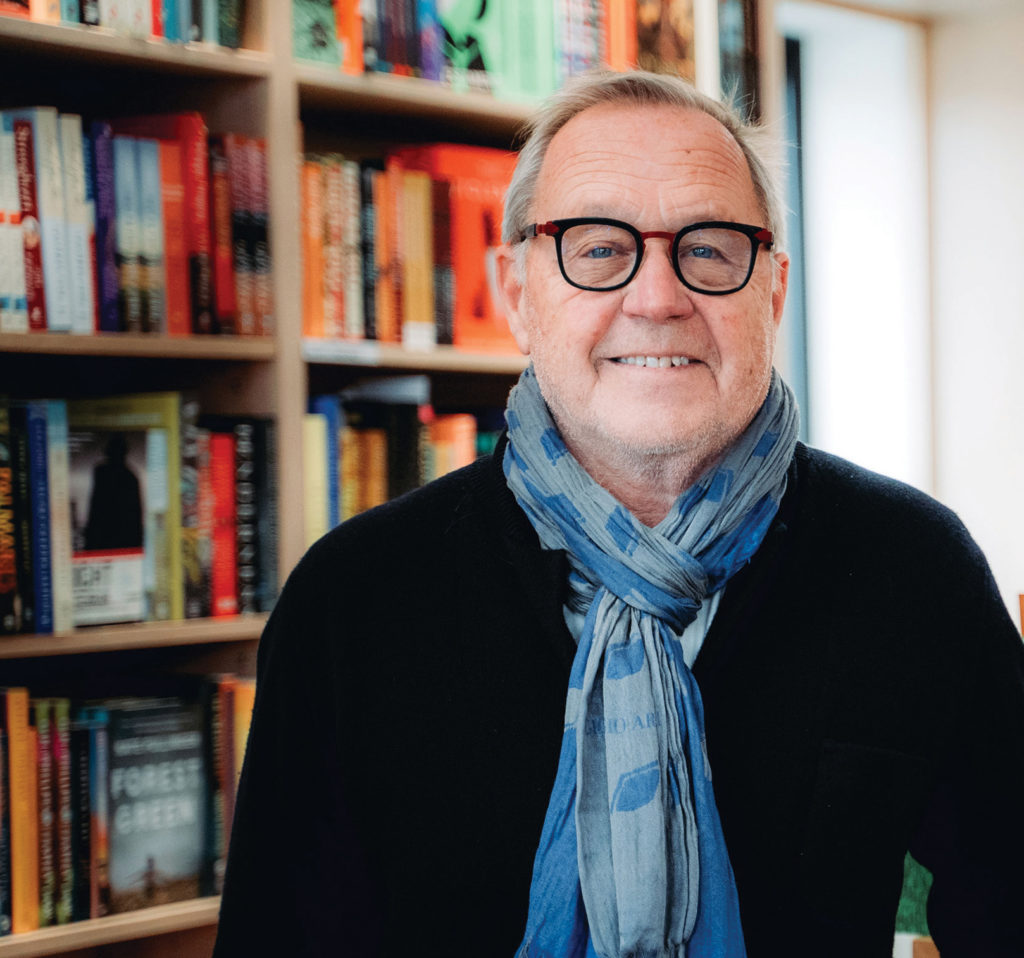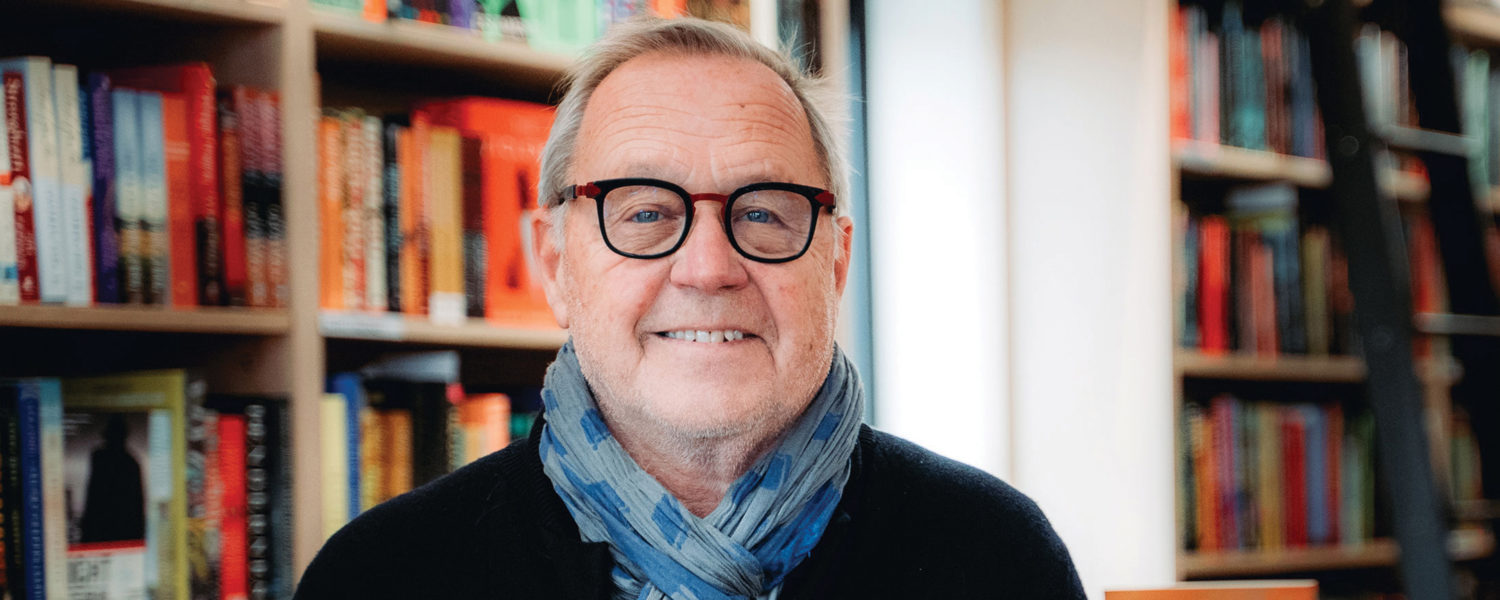Wisdom From Businessman Richard Peddie
Story by Michael Seguin
Photography courtesy of the University of Windsor
In a community with as many stars as Windsor and Essex County, few shine brighter than Dr. Richard Peddie.
A graduate of the University of Windsor, Richard first enrolled at the school in 1965, graduating in 1970.
“I received a great education from my hometown,” Richard states. “I learned from some wonderful professors and wonderful classmates. In those days, classes were smaller, so we stuck together. A bunch of us recently celebrated our 53rd-year reunion since graduation!”
(And while at university, something curious happened. Richard wrote in his journal that he wanted to own a men’s basketball team, but more on that later.)
“I learned a lot during my time at university,” Richard explains. “I became very self-sufficient and independent. I picked up good, functional academic skills that helped me out later in my career. It gave me a strong foundation to stand on.”
From there, Richard’s career was a distinguished one. After university, he immediately began working in Marketing at Colgate. He later worked at General Foods (now Kraft Foods), becoming President of their Hostess Potato Chips division at 35. He then became President and CEO of Pillsbury/Green Giant.
“I worked at Pillsbury four years,” Richard recalls. “And I had great success there. I worked with some wonderful young men and women who all went on to do very, very well. I think you can judge the quality of any institution or university by what the graduates go on to do.”

After that, Richard served as the President and CEO of the SkyDome (now the Rogers Centre). The job demanded much of Richard, who had to learn how to run a venue that would entertain thousands of people many times a week.
Four years later, Richard later won the Stadium Manager of the Year in North America.
All of this led to Richard achieving his dream of running an NBA team.
“Larry Tanenbaum called me up one day asking who I knew that could help bring a team to Toronto,” Richard recalls. “And I said: me!”
Richard unfortunately lost his first bid for a team, but was undeterred. Later, in November 1996, Richard Peddie was named President and CEO of the Toronto Raptors.
“All this was 28 years after I said I wanted to run a basketball team!” Richard states.
Richard then took control of the new Maple Leaf Sports and Entertainment in October 1998, and served as President and CEO for 14 years until his retirement in 2012.
And now, 11 years after retiring, Richard is a philanthropist. He believes in giving back to the community that has nourished him. He currently supports everything from the Windsor Symphony Orchestra to Art Windsor-Essex.
He is also helping to redefine Amherstburg. His bookstore, the River Bookshop, first opened its doors in 2020.
“I’m a longtime bibliophile,” Richard states. “My Dad got us reading at a young age. I never really had a mentor per se throughout my career. I certainly had people I worked for who I learned good and bad things from, but my real mentor was always books. I read voraciously. It helped me become a better leader.”
Richard has also authored two books: Dream Job: My Wild Ride on the Corporate Side with the Leafs, the Raptors and TFC in 2013 and 21 Leadership Lessons: Successes, Failures, and Discoveries from a Life in Business and Sports in 2015.
That said, when considering his adopted hometown, Richard realized something was missing.
“My wife and I started looking at what we could do to enrich Amherstburg,” Richard states. “Being a reader and having experience writing books, I realized that all great small towns have their own independent bookstore. And we didn’t! So, we opened the River Bookshop.”
And when it comes to those people reading who might be looking to turbo-charge or change their career, Richard offers the following fours pieces of advice:
First, Richard stresses the importance of a driving vision.
“Whether you’re a business or an individual, you have to have a dream,” Richard states. “What’s that statement of intent? What’s the vision for your company? Start with that. Write it down. It’s been proven through research that if you write down your dream, the chances of it coming true increase exponentially. That doesn’t mean you will succeed, but the statistical probability increases dramatically.”
Richard quotes Jack Canfield, the co-author of Chicken Soup for the Soul: “Decide what it is you want, write it down, review it constantly, and each day do something that moves you toward those goals.”
Second, Richard suggests determining your own personal values.
“Your vision is the what, your values are the how,” Richard explains. “Ask yourself what you value as an individual or leader. And if you’re leading a company or working for one, find out what their values are. All the companies I worked for—whether SkyDome or Pillsbury or the Raptors—had their own values I could work within.”
Third, Richard encourages readers to put in the time required to gain experience.
“There’s an expression I’m fond of: get your ticket punched,” Richard states. “In the old days, when you got on a train or a bus, you got your ticket punched. When I was young, I got my ticket punched lots of times. I learned about marketing and sales from working at Colgate. I got my ticket punched when I led people at Pillsbury and General Foods. I got my ticket punched learning how to run a stadium.”
And perhaps most importantly, Richard describes how to learn from failures.
“Everyone will have setbacks,” Richard explains. “The company will be bought. The company will close. The company will merge. You’ll work for a boss you don’t get along with. There’s a lot that can go wrong. It’s the nature of the business environment today.”
When faced with overwhelming hurdles, Richard quotes an old friend, Pistons Coach Dwane Casey:
“Get back into the gym.”
“When I lost my first bid for an NBA team, I got back into the gym and switched careers and got into broadcasting,” Richard recalls. “When you have that setback, always get back into the gym. Re-strategize and find a way.”
And despite the turbulent times we’re living in, Richard believes in the power of every person’s individual voice.
“Everyone has a voice,” Richard stresses. “And make sure it’s an educated voice. That you’ve done your homework, that you’ve done your reading. There’s a great book by Roger Martin, the former Dean of the Rotman School of Management at the University of Toronto. He uses the metaphor of bricks—we can either take bricks away from a business or we can add bricks to a business. You can be a bricklayer and add to the robustness of your business and community.”




Add comment